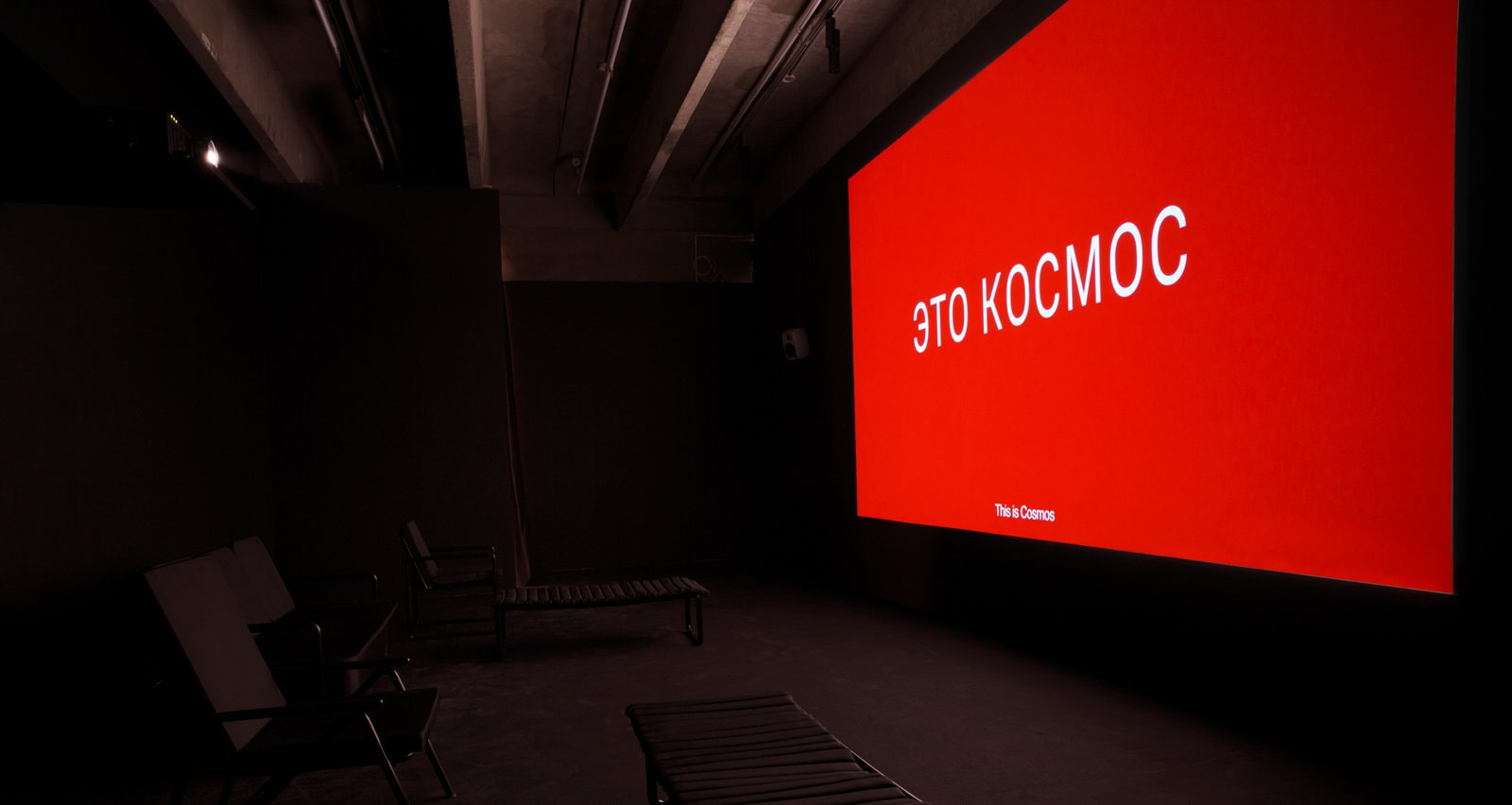Anton Vidokle: This is Cosmos!
This is Cosmos is the first film in a planned trilogy inspired by the ideas of Russian cosmism, which is a unique phenomenon that emerged in the late 19th century, bringing together religious, philosophical, scientific and aesthetic theories united by a common idea of cosmos as a universal order.
Drawing widely on poems, philosophical texts, scientific writings, academic papers, and historical studies from followers of Cosmism, Anton Vidokle has focused on the writings of philosopher Nikolai Fyodorov, the founder of the movement. In creating his theories of the “Common Cause,” Fyodorov advocated for the development of scientific methods for the radical extension of life and the resurrection of the dead, believing that death was a mistake, “because the energy of cosmos is indestructible, because true religion is a cult of ancestors, because true social equality is immortality for all.”
This is Cosmos was filmed at locations in Moscow and Arkhangelsk regions, Altai, Kazakhstan and Crimea—regions and places that have played an important part in the history of the movement. As a non-linear history of ideas and practices related to cosmism, the film is an aesthetic exploration of the potential immanent in the utopian idea of a better world. In this way Vidokle recalls the tradition of the Russian avant-garde with their totality of thinking.
Underlining this connection, one section of A Progress Report is dedicated to works by artists of the Russian avant-garde: Kazimir Malevich and his pupils Nikolai Suetin, Ilya Chashnik, Konstantin Rozhdestvensky, Vladimir Sterligov, Ivan Kudriashov; Mikhail Matyushin’s followers Pavel Mansurov and the Ender siblings; as well as visionary architect Yakov Chernikhov. For them cosmos was no longer an abstract idea, but a very real foundation for a great experiment. They all believed in the universal power of their art and imagined a new world, challenging the laws of physics. In the context of cosmism, their utopian projects become a constructive force leading humanity toward new opportunities.
Anton Vidokle will continue filming his trilogy from June 2015.
Thanks go to The State Tretyakov Gallery, with a personal thank you to its director, Zelfira Tregulova, as well as the head of 20th Century Graphic Art, Natalya Adaskina.
The archive of the Russian Academy of Science, with a personal thank you to its director, Vitaly Afiani, and the academic secretary, Nadezhda Osipova.
The Iakov Chernikhov International Fund, with a personal thank you to its president, Andrey Chernikhov.
Roman Babichev
Konstantin Grigorishin and Olga Vashchilina
Andrey Eremin
Maria Salina and Sergey Krivosheyev
Irina Stergilova
